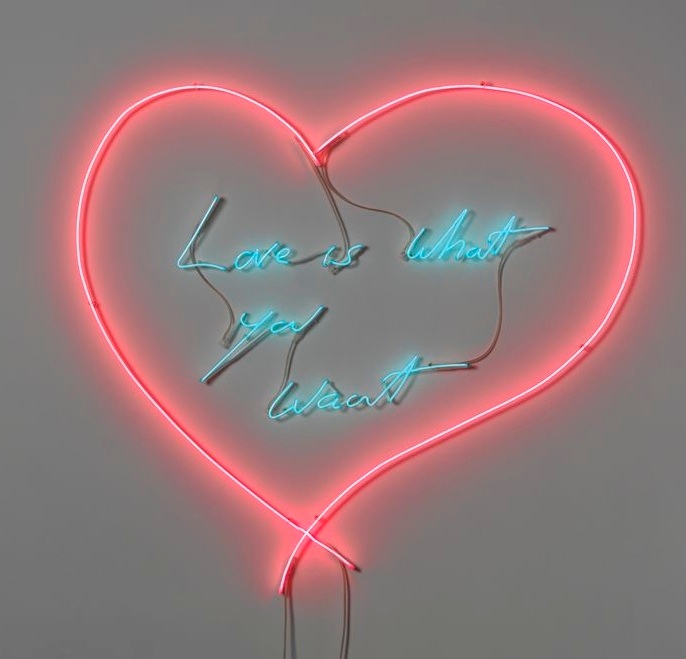Tracey Emin
“The words went round and round in my mind and my body,” Emin writes in her memoir Strangeland (2005), “until I knew they were no longer my words but something that had been carved into my heart. And now my soul was crying.” Written in the artist’s familiar hand (complete with spelling errors), Emin’s neon works read as lines addressed to an absent other. They are in turn plaintive and passionate, these secret desires made signs – I want my time with you – because of you I’m here – you forgot to kiss my soul – Just Love me. The words glow brightly from dark walls in all the colours of a strip mall; their fluorescent phrases, at once revelatory and cliched, laced with romantic sentiment, melodrama, and yearning. Emin's retrospective at the Hayward Gallery in 2011 shared this work's title, Love is what you want – the artist's self-reflexivity is the voice in your head, a mantra uttered on behalf of us all.
b.1963, Croydon
“There's nothing postmodern about what I do,” Tracey Emin says of her work. “It is what it is. There's no cynicism there at all.” An artist profoundly without irony, Emin offers instead sincere, even radical, vulnerability. She is her sole subject; her life, her struggles. “I realised that I was much better than anything I had ever made,” the artist recalls. “I was the work; I was the essence of my work.” Even in those works from which she is conspicuously absent, such as Everyone I’ve Ever Slept With 1963–1995 (1995) and My Bed (1998), Emin remains an insistent presence. In her practice, self-obsession becomes self-reclamation, a gesture of healing, however counter-intuitive it might first appear. Returning to memories of past traumas in her work, Emin mines her autobiography for moments of both pain and triumph. Confessional, explicit, provocative – her work is all this, but something else besides. It is compelling for its rare honesty, its frankness (however foul-mouthed). Emin’s offerings are, above all, tender – with perhaps the exception of Fuck Off and Die You Slag (2002), but even then, the neon words are a kind, pastel pink. With something like generosity, she lays herself bare; invites the viewer to share in her joys and sorrows. Sex, shame, the body, her body, love lost, and intimacies past – in a word, life – are Emin’s guiding themes.
